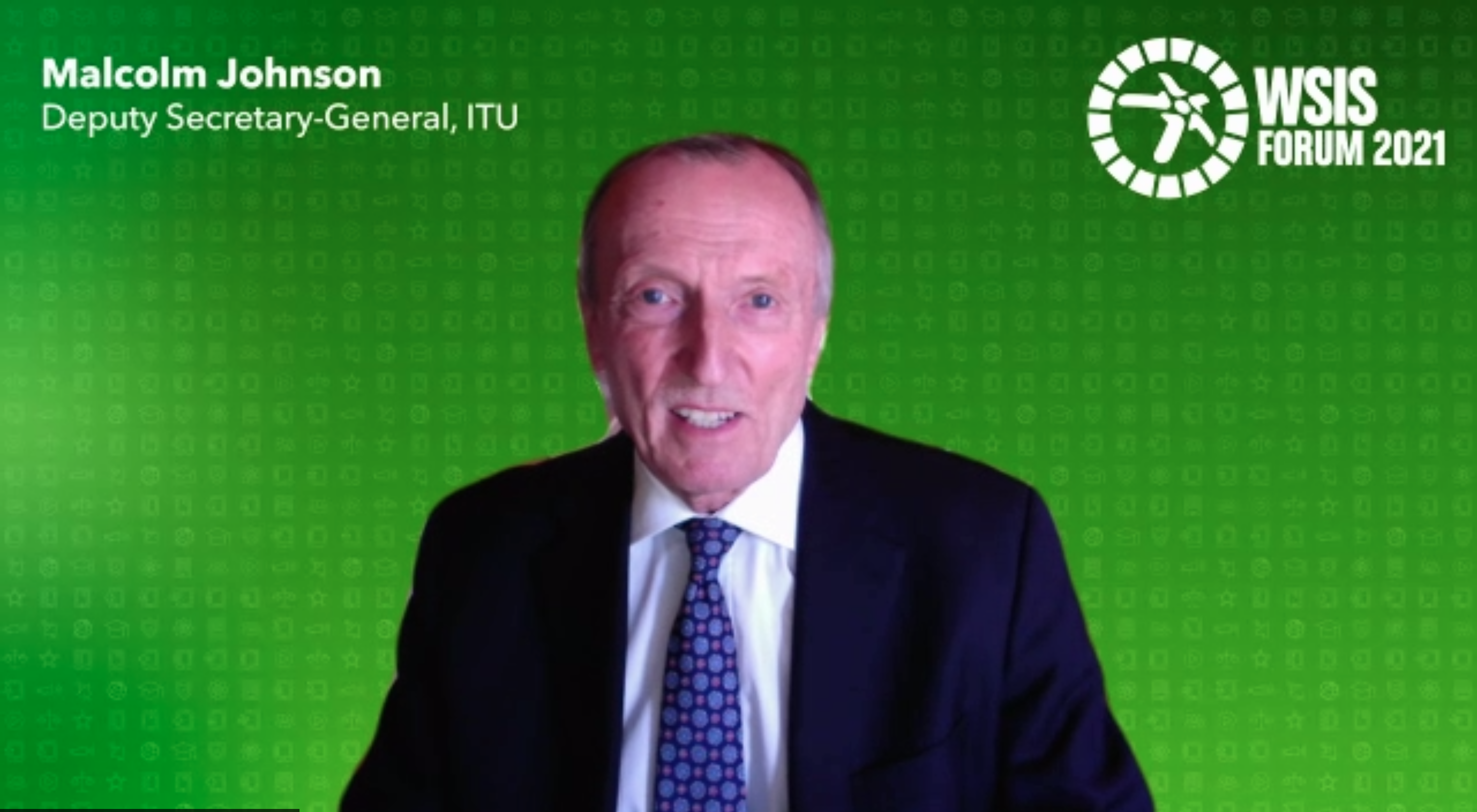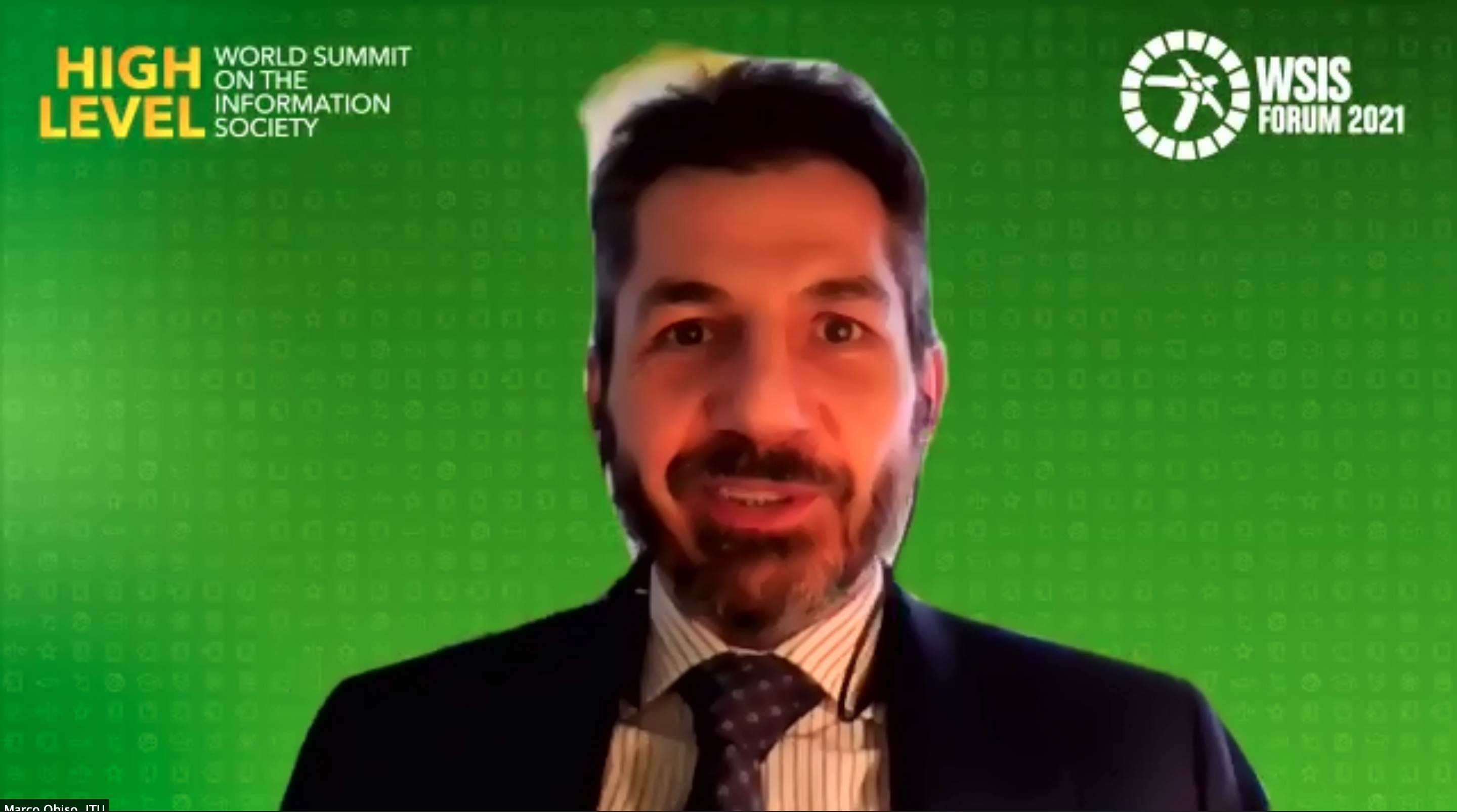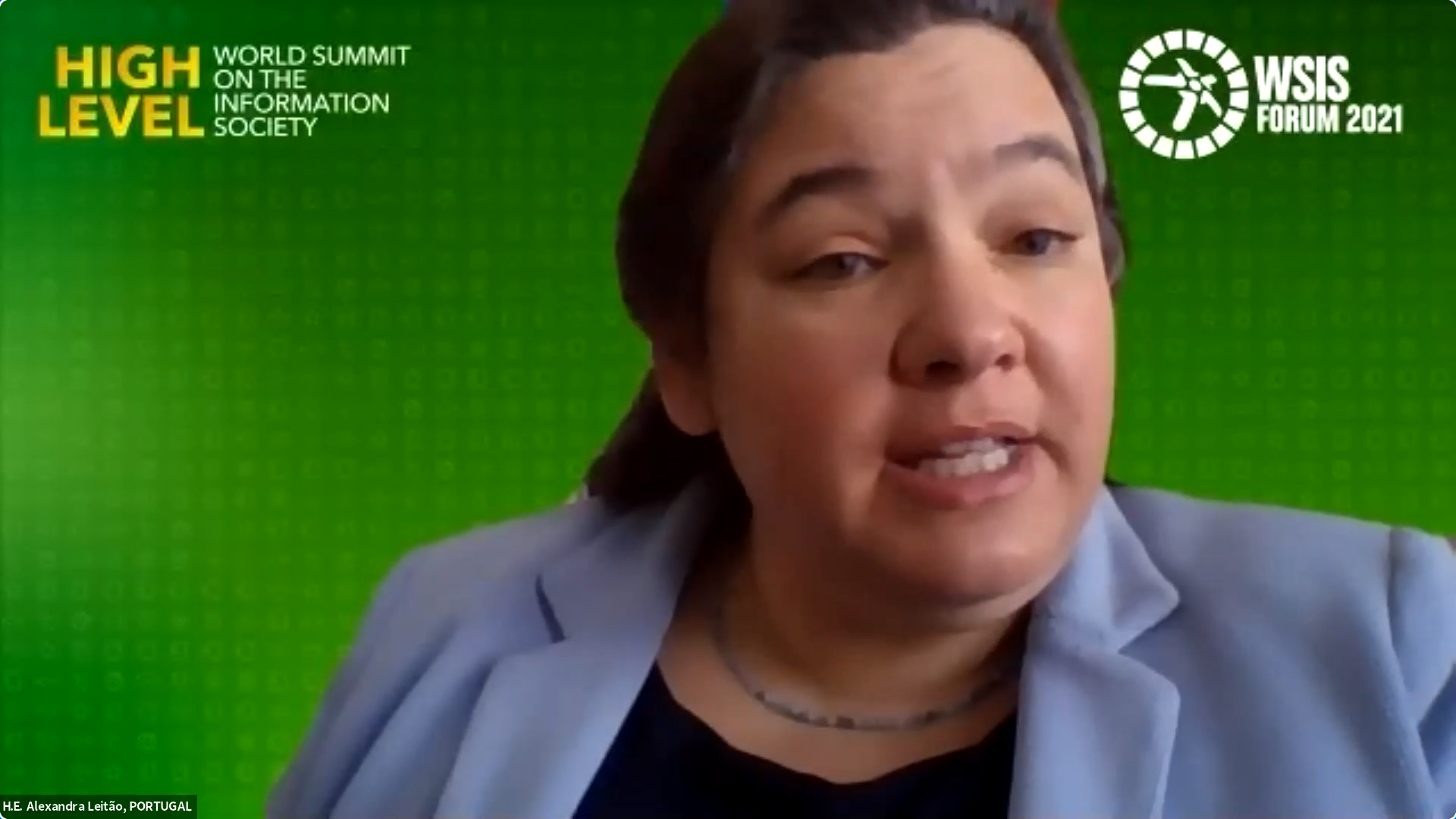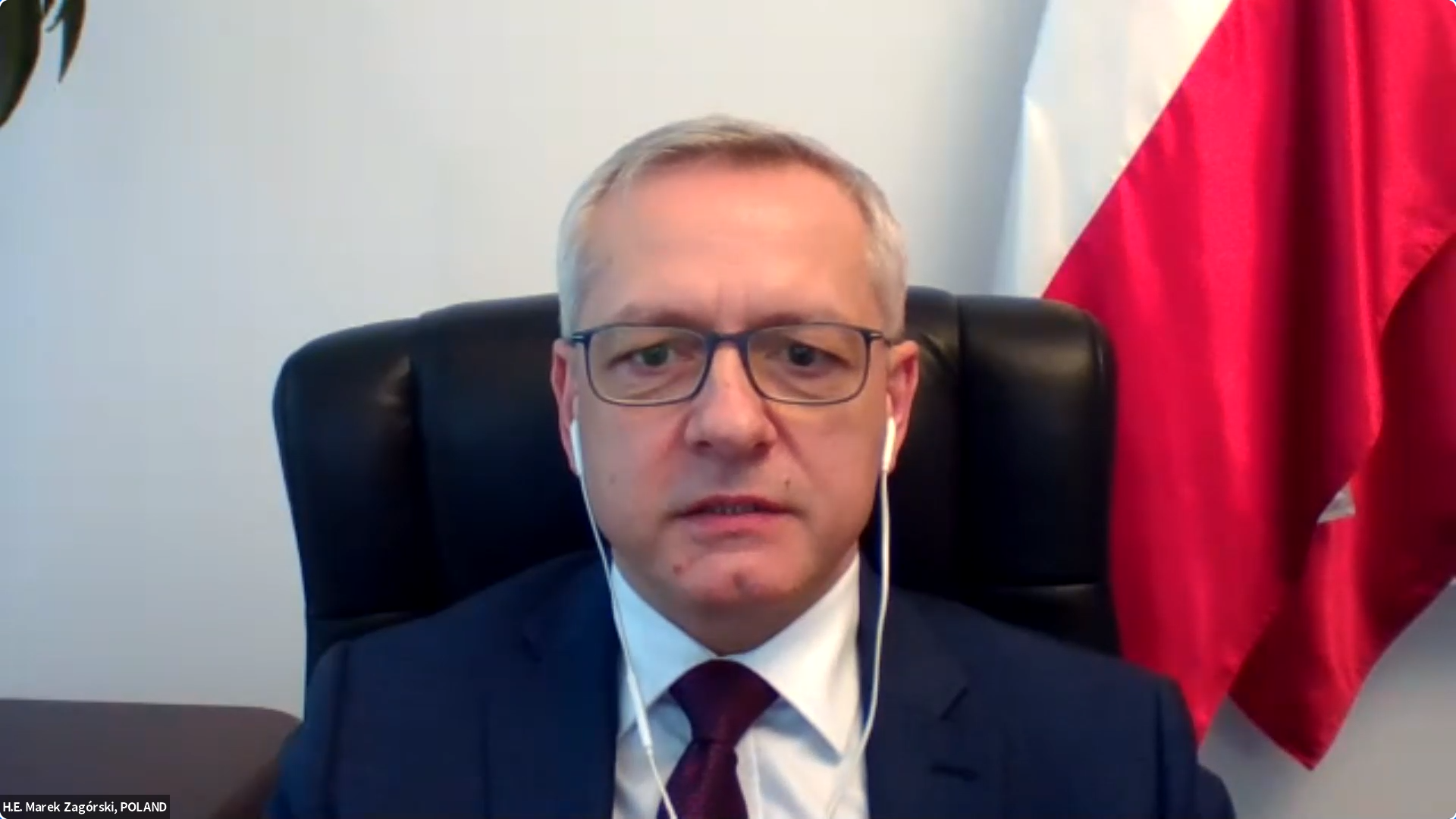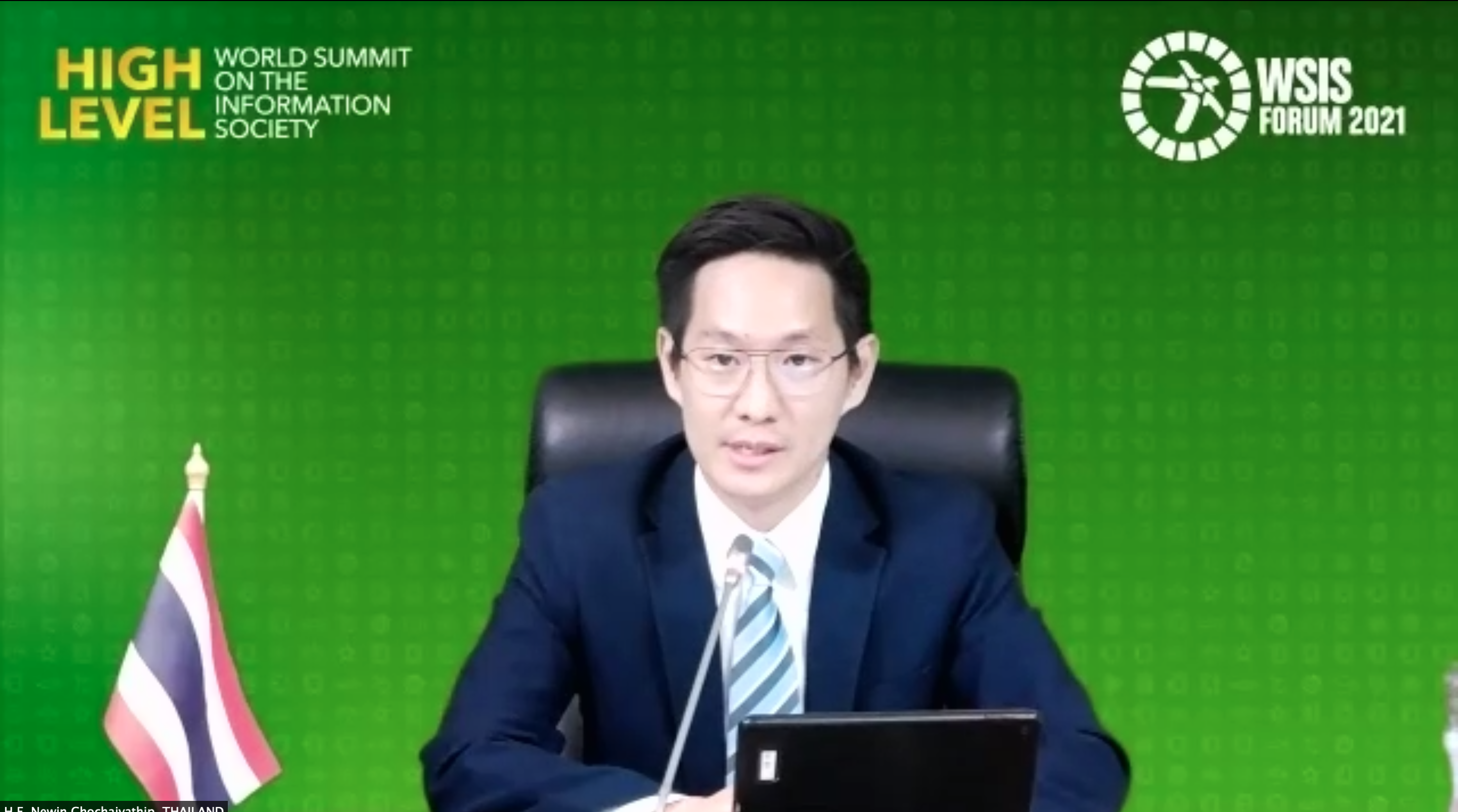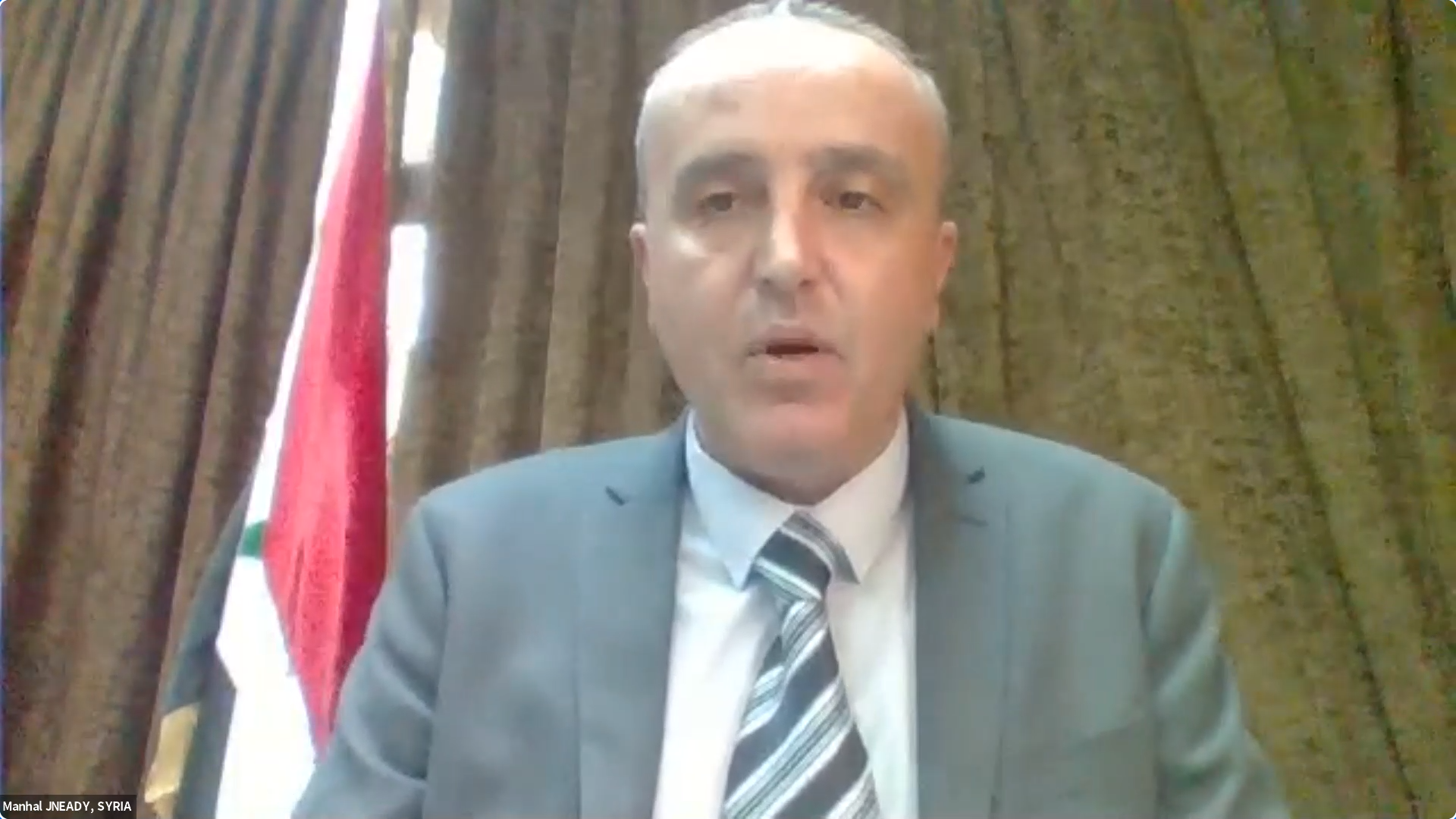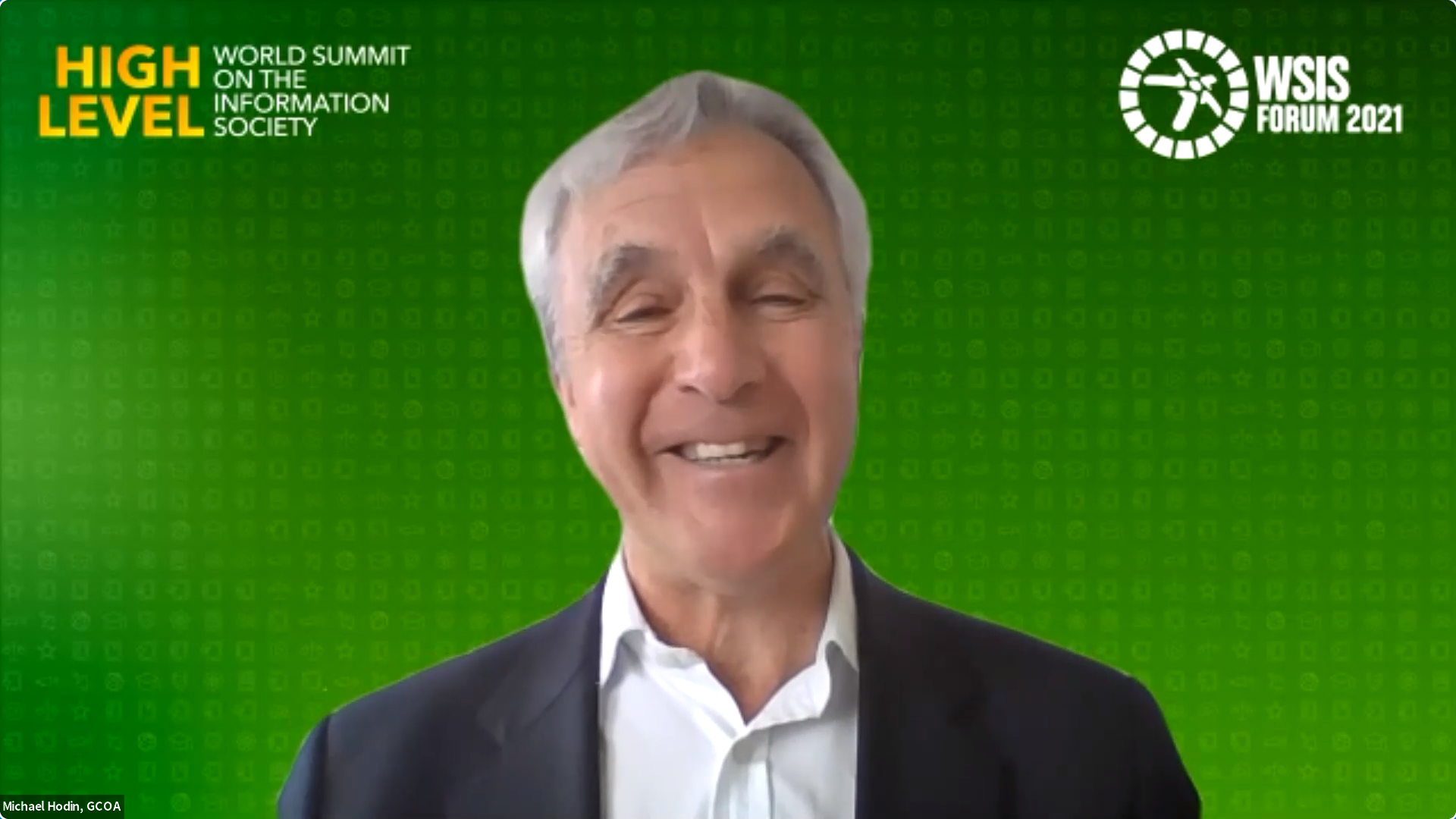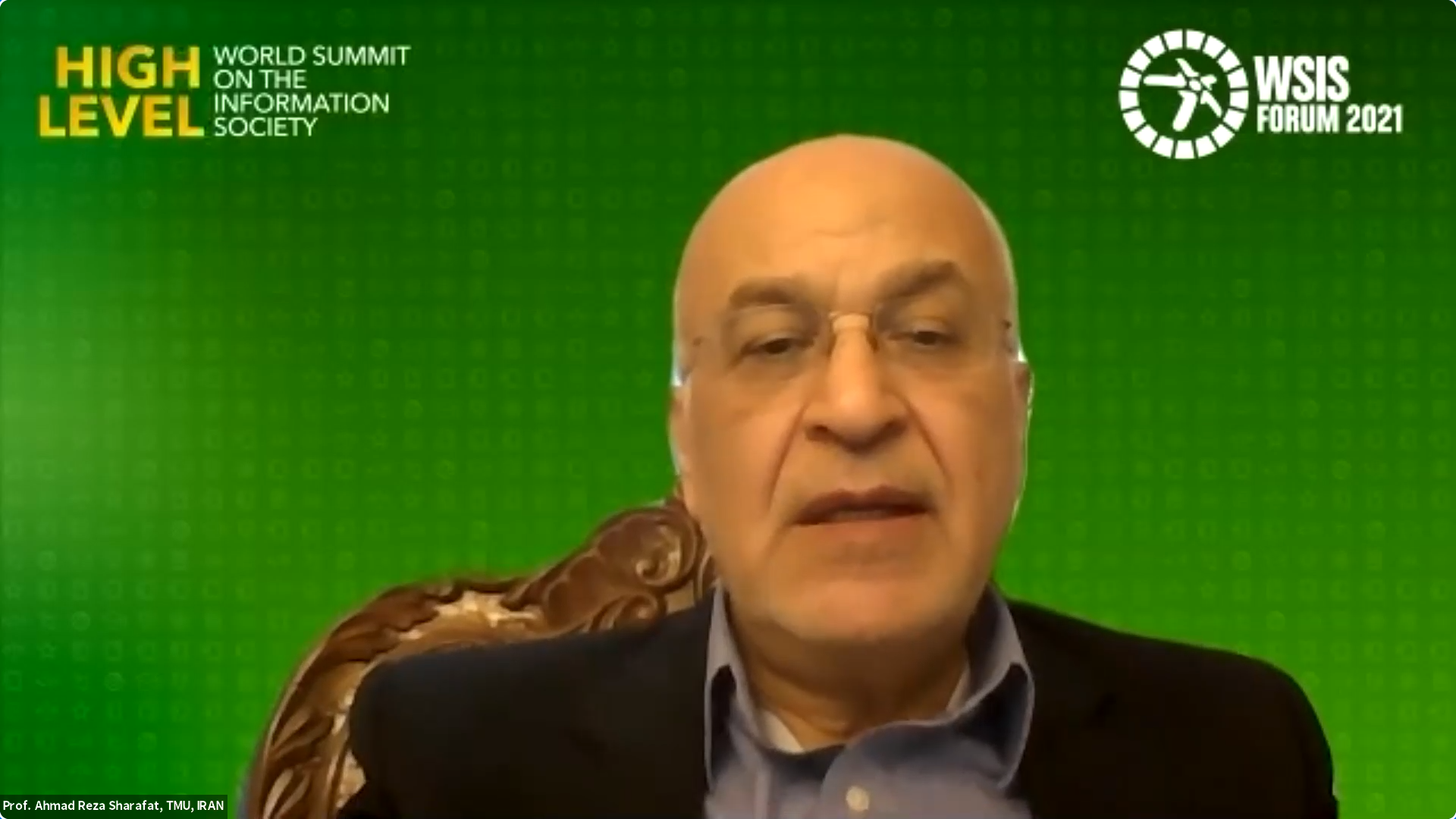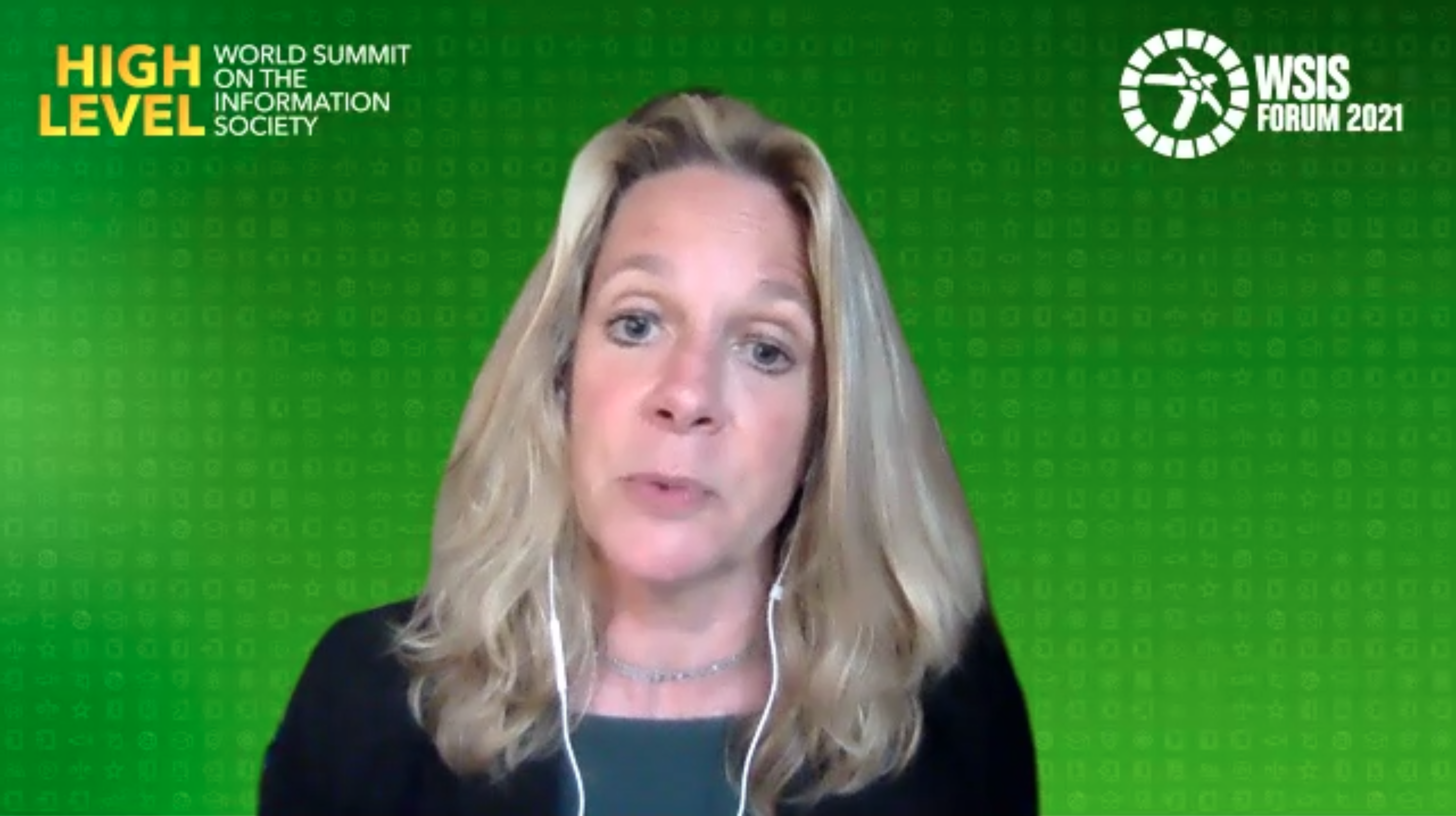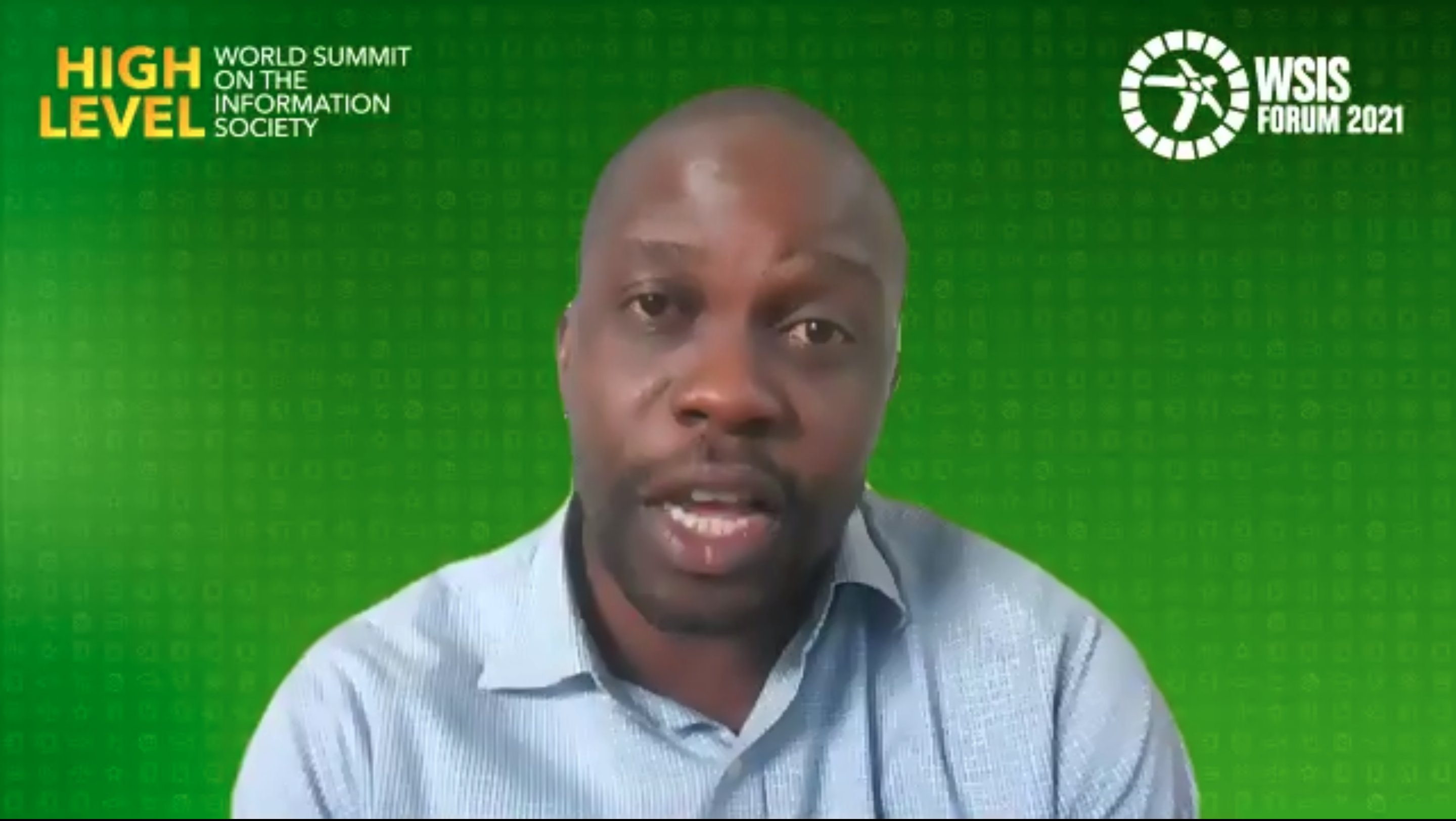High-Level Policy Session 4: ICT Applications and Services /e-Environment/ Climate Change
WSIS
Session 160
ICT Applications and Services
"The usage and deployment of ICTs should seek to create benefits in all aspects of our daily life. ICT applications are potentially important in government operations and services, health care and health information, education and training, employment, job creation, business, agriculture, transport, protection of environment and management of natural resources, disaster prevention, and culture, and to promote eradication of poverty and other agreed development goals. ICTs should also contribute to sustainable production and consumption patterns and reduce traditional barriers, providing an opportunity for all to access local and global markets in a more equitable manner. Applications should be user-friendly, accessible to all, affordable, adapted to local needs in languages and cultures, and support sustainable development. To this effect, local authorities should play a major role in the provision of ICT services for the benefit of their populations."
Geneva Declaration of Principles, https://www.itu.int/net/wsis/docs/geneva/official/dop.html
e-Environment and Climate Change
Governments, in cooperation with other stakeholders are encouraged to use and promote ICTs as an instrument for environmental protection and the sustainable use of natural resources.
Government, civil society and the private sector are encouraged to initiate actions and implement projects and programmes for sustainable production and consumption and the environmentally safe disposal and recycling of discarded hardware and components used in ICTs.
Establish monitoring systems, using ICTs, to forecast and monitor the impact of natural and man-made disasters, particularly in developing countries, LDCs and small economies.
Geneva Declaration of Principles, https://www.itu.int/net/wsis/docs/geneva/official/dop.html


William is the Head of Technology at Ol Pejeta Conservancy where he provides vison and leadership for developing and implementing technology initiatives which cut across enterprise IT, renewable energy and emerging & disruptive technologies. He Leads Ol Pejeta's digital transformation journey in support of conservation and community development. He is responsible for technology policies and strategic direction, ensuring Ol Pejeta staff have sufficient skills in business systems and cybersecurity, and performs donor liaison on conservation tech projects.
William is very passionate about emerging technologies and derivessatisfaction from the impact of technology on people and operations, especially in areas that are traditionally considered to be non-tech. He is currently running some interesting IoT and remote sensing projects that leverage on the power of cloud computing and artificial intelligence.William is a certified Project Management Professional and holds a BSc. Software Engineering from Kenyatta University.

Mr. Marco Obiso is the Head of the Cybersecurity division and currently acting as Chief of the Digital Network Society Department in the Telecommunication Development Bureau of the International Telecommunication Union (ITU), the lead UN-specialized agency for ICTs, and has been working in the field of Information and Communication Technologies for the past two decades.
He has been operating in several ICT related domains such network infrastructure development, system integration, application cooperation, IT Service Management, Internet governance and information security.

Senator the Honourable Kay McConney is the Minister of Innovation, Science and Smart Technology (MIST) of the Government of Barbados. This Ministry’s mandate is to lead the modernization of the public sector through transformational and technological change; and to create a sustainable, enabling environment for a vibrant, knowledge-based, digital economy and a digitally intelligent society. In addition, the Ministry’s remit includes telecommunications oversight and policy development which aims to facilitate a competitive, fully liberalized sector fit for purpose in the 21st century.
Described by She Caribbean magazine as a “dynamo moving the region forward”, Minister McConney has championed the interests of Barbados, the Caribbean and small vulnerable economies internationally. In 2017, the University of the West Indies honoured her with the Vice Chancellor’s award for outstanding contribution to the international advancement of the Caribbean region. Minister McConney is a former high-level diplomat at the United Nations (UN); a former negotiator at the World Trade Organisation (WTO); and a former Consul-General in Canada. Before taking up her role as a Senator and a Cabinet Minister in June 2018, she headed a company that specialised in leading strategic change in 21st century environments. In addition, Minister McConney has, for more than a decade, been an expert resource for various international development initiatives.

Alexandra Leitão was born in Lisbon in 1973. She holds a degree, a master and a PhD in Law, all from the Faculty of Law of the University of Lisbon. She is an assistant professor at the Faculty of Law of the University of Lisbon.
Alexandra Leitão was Assistant Secretary of State and Education between 2015 and 2019.
Between 2009 and 2011 she was Deputy Director of the Legal Centre of the Presidency of the Council of Ministers (CEJUR), where she served as a consultant from 1999 to 2009. She was a member of the Advisory Board of the Attorney General's Office between 2011 and 2015. From 1997 to 1999, she was adviser in the Cabinet of the Secretary of State of the Presidency of the Council of Ministers.

As Secretary of State at the Chancellery of the Prime Minister and Government Plenipotentiary for Cybersecurity he is responsible for the state policy in the field of computerisation, development of e-services in public administration, civil security in cyberspace, infrastructure and the use of innovative technologies. He also implements a project of key importance for the development of the country, namely the National Educational Network project.
He has been working at the Ministry of Digital Affairs from 16 September 2016, where he served as the Secretary of State until 17 April 2018 and then as Minister of Digital Affairs until the 6th of October 2020.
Under his leadership, the Ministry of Digital Affairs has prepared a number of facilities for citizens, including tolls for reporting the birth of a child on-line, as well as an exemption for drivers, who do not have to carry their vehicles’ registration certificates any more. He coordinated work on the preparation and implementation of the Act on the National Cyber Security System, adaptation of Polish regulations to the General Regulation 2016/679 of the European Parliament and the Council (EU) on the Protection of Personal Data (GDPR), as well as changes in telecommunications law, thanks to which subscribers are better protected against abuse by dishonest Premium SMS service providers. Thanks to the activities undertaken by the Ministry of Digital Affairs during his term of office, in 2018 the number of Trusted Profile users increased by one million (to more than 2.6 million).

H.E. Mr. Newin Chochaiyathip was appointed as the Vice Minister of Digital Economy and Society in August 2019. He holds a Bachelor’s Degree in Architecture from Silpakorn University, Thailand. Before entering the political field, he had years of experience in business area as a Managing Director in construction and innovation businesses. He isalso a member of the Bangkok Governor Policy Coordination and Monitoring Committee.
Mr. Chochaiyathip has profound knowledge in innovation and urban development. He promotes and supports digital technology adoption for economic, social, cultural and security benefits as well as pushing forward Smart City Thailand Initiative in order to improve people’s quality of life, decrease inequality between urban and rural society and solve problems of rapid urban growth such as city congestion, air pollution and poverty. He also plays an active role to support and monitor the operation of the Thailand’s Anti-Fake News Center in verifying information shared online.

Pedro Fernandes Lopes is the current Secretary of State for Innovation and Vocational Training of the Government of the Republic of Cape Verde.
He is known for organizing the first TEDx event in Cabo Verde, as well as being chosen by former President Barack Obama to be involved in his first leadership initiative in Africa, named Obama Leaders.
Lopes has been involved in many different projects to encourage innovation within his country, including a push to teach coding as a foreign language in Cabo Verde, as well as being one of the only African countries to represent themselves and many startups at large web summits.
Pedro Lopes has a degree in International Relations (University of Coimbra, Portugal), Master in Conflict Resolution (University of Bradford, UK) and Post Graduate in Strategic Marketing Communication (Department of Economics, University of Coimbra). He was President of the International Relations Students' Union of the University of Coimbra (NERIFE).

- Head of Electronic Lottery Committee (Testing Phase)
- Supervised Launching LTE Services in Syria.
- Member of Transfer Money Companies Committee, Designing new License and new companies capital.
- Participated in launching IP-TV Service on both ISPs and GSM operators.
- Supervised IMEI Reconciliation project, from Technical, Regulation and legal point of view.
- Set Operational Procedures to inquire Fleet Management and Tracking license.
- Auditing Syrian Telecommunication Company (ST) revenue during BOT contract, since the beginning of the contract until the end, From IT, TC, FN and Regulation point of view.
- Supervising all Services and Offers, for GSM operators since 2006 until Now.
- Auditing All governmental Revenue sharing portion of Telecommunication companies' revenue, Especially Central bank Treasury ones.
- Supervising ISPs Work, Related to Billing and Intelligent Systems.
- Member of License Committee for Syrian GSM Operators during 2015.
- Member of 3rdoperator license Committee During 2010.
Head of IRS Committee, Interconnect between PSTN, International Getaway and GSM operators as a part of CCBS

Michael W. Hodin, Ph.D. is CEO of the Global Coalition on Aging, Managing Partner at High Lantern Group, and a Fellow at Oxford University’s Harris Manchester College. Mike is a Member of the Council on Foreign Relations, and from 2010 until 2013, was Adjunct Senior Fellow with a focus on population aging. Mike was the recipient of the 2012 Fred D. Thompson Award from the American Federation for Aging Research. He sits on the Boards of the Foreign Policy Association, Business Council for International Understanding, American Skin Association, American Federation for Aging Research and Emigrant Savings Bank.
Mike was a member of the World Economic Forum’s Global Agenda Council on Ageing. Prior to founding GCOA, he led International Public Affairs and Public policy at Pfizer for 30 years. Mike began his career as Legislative Assistant to Senator Daniel Patrick Moynihan and during this time served as a Visiting Scholar at Brookings Institution.

Prof. Ahmad R. Sharafat is Professor of Electrical and Computer Engineering at Tarbiat Modares University, Tehran, Iran; Senior Advisor to the Minister of Communications and Information Technology in Iran; Member of the Iranian Academy of Sciences; and Chairman of ITU‐D Study Group 2. He received his B.Sc. degree from Sharif University of Technology, Tehran, Iran, and his M.Sc. and his Ph.D. degrees both from Stanford University, Stanford, California, all in Electrical Engineering in 1975, 1976, and 1981, respectively. He has been active in specialized international organizations in the field of telecommunications and information technology, and in particular, the International Telecommunication Union (ITU) and Asia Pacific Telecommunity (APT). He has published extensively in scientific scholarly refereed journals, has numerous presentations to international conferences, has co‐authored four books, and has eleven patents.

Sarah Armstrong joins the Internet Society Foundation as the Executive Director. She brings with her a career that has been dedicated to non-profit, humanitarian and international development work.
Her previous position was with Abt Associates where she directed the Marketing Communications department and was responsible for strategy, operations and program management for the communications, marketing and business development functions. She had been with Abt for more than seven years.
In 2004, Sarah established A Brighter Tomorrow for Africa Foundation (BTA), a non-profit dedicated to improving the lives of women and children in Sierra Leone, West Africa through the financial support of small, community-based organizations. The organization now develops and maintains school feeding programs in rural and urban areas of Sierra Leone for over 1000 children who are now able to succeed in school because of the nourishment they receive. They are advancing in grades, passing national exams and moving on to university. In the Fall of 2017, BTA provided support for mudslide victims at camps in Freetown, the country’s capital. And, during the recent Ebola crisis, when children were quarantined in their villages and not permitted to go to school, BTA provided hundreds of radios so students could tune in their teachers over the air waves. Sarah is the recipient of the Humanitarian Leadership Award, awarded by National Organization of Sierra Leoneans of North America and has travelled and worked extensively in the developing world. She was born in White Plains, NY and has lived in seven U.S. states, the District of Columbia, South Sudan and Paris, France.

Mr. Makatiani is the CEO of Serianu Limited, a Pan African Cyber Security consulting firm with presence in Kenya, Ethiopia, Ghana, Mauritius, Botswana and Nigeria.
The firm provides dynamic, business focused security monitoring and analytics solutions through a combination of consulting, managed services and threat intelligence. Mr. Makatiani is currently leading a country wide sacco research and continent-wide (Nigeria, Kenya, Botswana, Uganda, Ghana and Ethiopia) effort to develop research based insights on the state of cyber security in Africa.
Before Serianu limited, Mr. Makatiani worked with Deloitte and Touché’ RSA security, EMC corporation and Federal Reserve Bank in Boston.
Mr. Makatiani has a strong passion for cyber security issues with an emphasis on research based consulting. He has over 15 years’ experience in the ICT industry – focusing on ICT Strategy, Analytics, Risk and Compliance. He has led numerous engagement across the world-including Kenya, United States, Israel, Ireland, Singapore, China, Egypt and India.
-
 C7. ICT applications: benefits in all aspects of life — E-government
C7. ICT applications: benefits in all aspects of life — E-government
-
 C7. ICT applications: benefits in all aspects of life — E-business
C7. ICT applications: benefits in all aspects of life — E-business
-
 C7. ICT applications: benefits in all aspects of life — E-learning
C7. ICT applications: benefits in all aspects of life — E-learning
-
 C7. ICT applications: benefits in all aspects of life — E-health
C7. ICT applications: benefits in all aspects of life — E-health
-
 C7. ICT applications: benefits in all aspects of life — E-employment
C7. ICT applications: benefits in all aspects of life — E-employment
-
 C7. ICT applications: benefits in all aspects of life — E-environment
C7. ICT applications: benefits in all aspects of life — E-environment
-
 C7. ICT applications: benefits in all aspects of life — E-agriculture
C7. ICT applications: benefits in all aspects of life — E-agriculture
-
 C7. ICT applications: benefits in all aspects of life — E-science
C7. ICT applications: benefits in all aspects of life — E-science
-
 Goal 1: End poverty in all its forms everywhere
Goal 1: End poverty in all its forms everywhere
-
 Goal 2: End hunger, achieve food security and improved nutrition and promote sustainable agriculture
Goal 2: End hunger, achieve food security and improved nutrition and promote sustainable agriculture
-
 Goal 3: Ensure healthy lives and promote well-being for all
Goal 3: Ensure healthy lives and promote well-being for all
-
 Goal 4: Ensure inclusive and equitable quality education and promote lifelong learning opportunities for all
Goal 4: Ensure inclusive and equitable quality education and promote lifelong learning opportunities for all
-
 Goal 5: Achieve gender equality and empower all women and girls
Goal 5: Achieve gender equality and empower all women and girls
-
 Goal 6: Ensure access to water and sanitation for all
Goal 6: Ensure access to water and sanitation for all
-
 Goal 7: Ensure access to affordable, reliable, sustainable and modern energy for all
Goal 7: Ensure access to affordable, reliable, sustainable and modern energy for all
-
 Goal 8: Promote inclusive and sustainable economic growth, employment and decent work for all
Goal 8: Promote inclusive and sustainable economic growth, employment and decent work for all
-
 Goal 9: Build resilient infrastructure, promote sustainable industrialization and foster innovation
Goal 9: Build resilient infrastructure, promote sustainable industrialization and foster innovation
-
 Goal 10: Reduce inequality within and among countries
Goal 10: Reduce inequality within and among countries
-
 Goal 11: Make cities inclusive, safe, resilient and sustainable
Goal 11: Make cities inclusive, safe, resilient and sustainable
-
 Goal 12: Ensure sustainable consumption and production patterns
Goal 12: Ensure sustainable consumption and production patterns
-
 Goal 13: Take urgent action to combat climate change and its impacts
Goal 13: Take urgent action to combat climate change and its impacts
-
 Goal 14: Conserve and sustainably use the oceans, seas and marine resources
Goal 14: Conserve and sustainably use the oceans, seas and marine resources
-
 Goal 15: Sustainably manage forests, combat desertification, halt and reverse land degradation, halt biodiversity loss
Goal 15: Sustainably manage forests, combat desertification, halt and reverse land degradation, halt biodiversity loss
-
 Goal 16: Promote just, peaceful and inclusive societies
Goal 16: Promote just, peaceful and inclusive societies
-
 Goal 17: Revitalize the global partnership for sustainable development
Goal 17: Revitalize the global partnership for sustainable development

